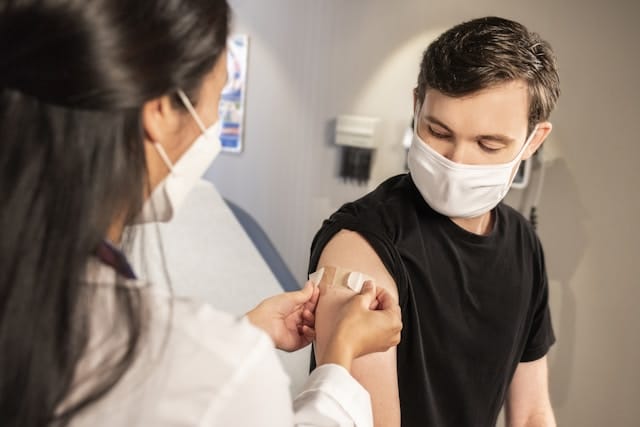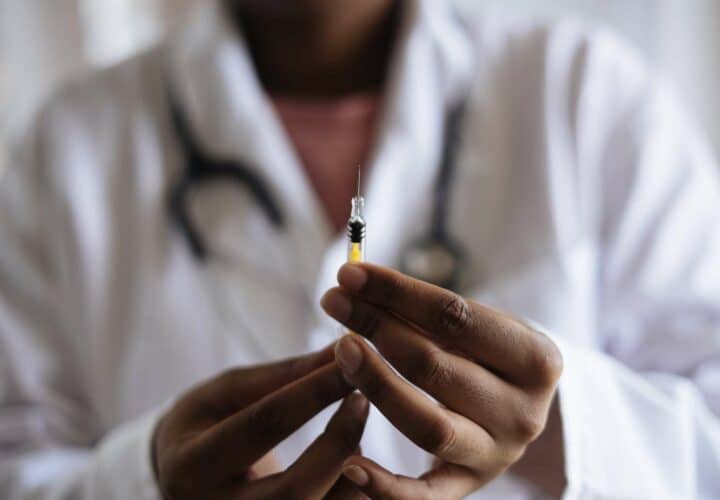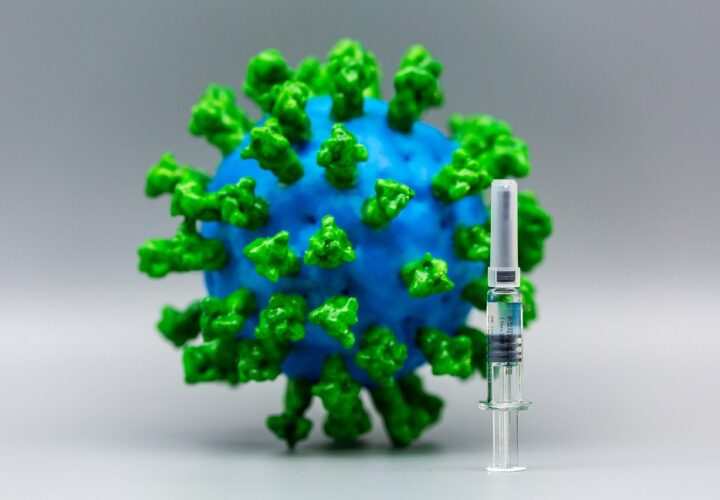A large-scale shingles vaccine rollout in Wales revealed an unexpected bonus: a 20-percent reduction in dementia risk over seven years.
Common viral infections may make the brain more susceptible to dementia and other neurological diseases. For instance, the Epstein-Barr virus — which causes mononucleosis — increases the risk of developing multiple sclerosis, 32-fold. SARS-CoV-2, the virus behind COVID-19, has been linked to a higher risk of dementia and long COVID, which includes lingering cognitive issues. Meanwhile, mounting evidence points to the Herpes virus playing a role in dementia.
For over two decades, scientists have seen that people who are vaccinated against tuberculosis, diphtheria, flu, COVID, and shingles are less likely to develop dementia. But these observational studies can’t prove cause and effect. In 2013, Wales’s rollout of the nation’s first shingles vaccine in 2013 gave researchers the opportunity to make a stronger case.
Pascal Geldsetzer, an epidemiologist at Stanford University and senior author of a recent Nature study, called the event a “natural experiment” — a public health policy shift that allowed scientists to assess the vaccine’s impact. Over seven years, people who received the shingles vaccine were 20 percent less likely to develop dementia.
“We are able to much more convincingly show a cause-and-effect relationship,” compared to previous observational studies, Geldsetzer told Being Patient.
A natural experiment in Wales
On September 1, 2013, Wales introduced the Zostavax vaccine for shingles, which used a weakened form of the Herpes zoster virus, called a live-attenuated vaccine. The vaccine came with strict age eligibility criteria rules to ration the supply. This set up the “natural experiment”:
Anyone who was 79 at the time would be eligible to receive the shingles vaccine for a year. Once they turned 80, they were no longer eligible.
The researchers examined the health records of more than 280,000 adults aged 71 to 88 years to assess the impact of the vaccine. They zeroed in on 16,595 adults who turned 80 the week before September 1st and those who turned 80 the week after. Only the latter group was eligible to receive the vaccine, and almost half of them received the vaccine.
As expected, people who received the shingles vaccine were 37 percent less likely to develop shingles. The vaccine reduced the chances of being diagnosed with dementia by three-and-a-half percent, amounting to a relative risk reduction of 20 percent.
“The effect that they’re observing is pretty similar to what other people have reported, including our team, corresponding to a 20 percent relative reduction and compared to the non-vaccinated people,” Jeffrey Scherrer, professor at Saint Louis University, who wasn’t involved in the study, told Being Patient.
Other factors at play?
Was it the vaccine itself that lowered dementia risk, or could other things — like education or other health factors — explain these benefits? Due to the education reforms in Wales in 1944, children born after September 2, 1933, who would be included in this study, were more likely to stay in school for an additional year.
But when researchers controlled for years of education and many other potential factors, the benefits of the vaccine persisted.
When comparing men and women, the researchers found that the reduction in risk was only seen in women. Geldsetzer and his co-authors believe that this might be due to sex differences in the immune system or the way that dementia develops, which might explain why they benefit.
Women develop more antibodies than men in response to vaccination and are also at a higher risk of developing dementia and accumulate Alzheimer’s tangles faster than men.
“The biggest concern I have [with the study] is that it’s limited to older patients,” said Scherrer, adding that it’s important to know whether we see the same effect in people who are in their 60s.
He also thinks that some of the results could be explained by the “healthy patient effect,” where people who exercise and take other actions to stay healthy, like receiving other routine vaccines, are less likely to develop dementia.
“Now it doesn’t mean it would explain away the results,” Scherrer said. “It just might reduce some of the effect size.”
Exactly why the vaccine is protective is unknown. Newer shingles vaccines don’t use a live-attenuated virus — they only have a few of the viral proteins. Observational studies suggest that these vaccines might have a similar benefit.
Proving the vaccine prevents dementia
Because people with shingles develop painful rashes, nerve pain, and other neurological complications, vaccination is recommended by the U.S. Centers for Disease Control and Prevention and many other health agencies.
A separate study published in April in JAMA detailed a similar natural experiment in Australia. In that study, people who became eligible for the same vaccine had a 1.8 percent lower risk of being diagnosed with dementia, an overall risk reduction of 33 percent, compared to those who were never eligible.
Geldsetzer now hopes to take the research further. “We’ve got this really compelling body of evidence on natural experiments, and we want to now do a true randomized clinical trial on the effect of single vaccination on dementia and cognition,” he said. The Zostavax vaccine is no longer manufactured in the US and Europe.
The trial would need to be conducted over decades. These factors would make it very expensive — Geldsetzer is hoping that private foundations and philanthropists step in to fund it.
Meanwhile, Scherrer said that he is not alone in believing such a trial would be unethical, as it may involve withholding beneficial medical treatment from a group of participants.
“If [a] single vaccination has a proven causal effect on reducing, preventing, or delaying dementia, then this would really mean that we must invest in understanding these mechanisms and further developing preventative therapeutics for dementia,” said Geldsetzer.
A grant from the National Institute of Allergy and Infectious Diseases (grant DP2AI171011) helped fund the research.




